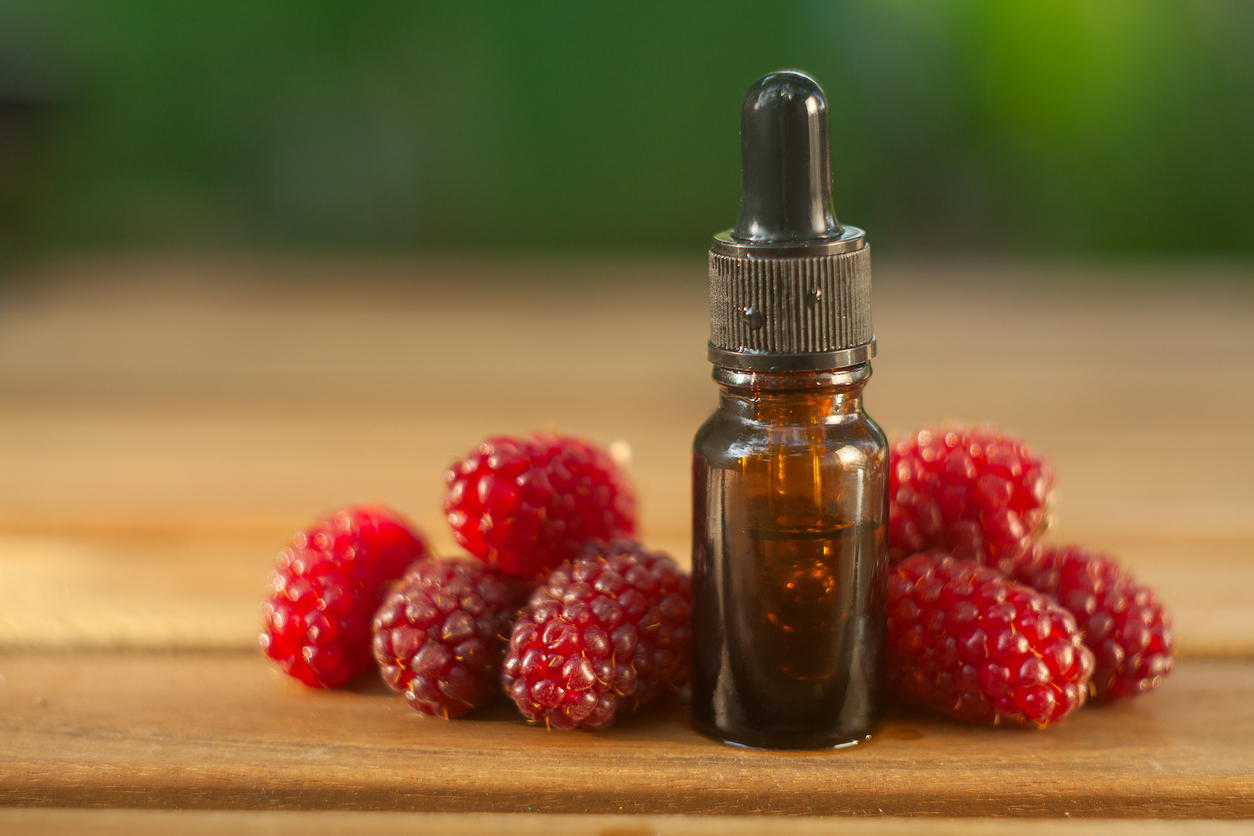
Raspberries and raspberry essence
Since ancient times, raspberries have been used for their health properties, as well as a food source. Physicians and herbalists recommended the fruit, leaves, and roots for everything from eye inflammations, boils, and fevers, to bowel problems, and even bee stings. Midwives recommended raspberry leaf teas and extracts for treating pregnancy-related problems and to prepare a woman for labor.
Native Americans recognized the powerful medicinal and protective properties of raspberries, using the fruit to treat coughs and in poultices. In the Philippines, people deterred souls from wandering into their homes by hanging raspberry canes outside. Raspberries were often used to treat cholera and dysentery. And in the 1900s, raspberry juice was used to make a syrup that disguised the unpleasant taste of other medicines.
More recently, studies have associated consumption of raspberries with protection against diabetes, cancer, obesity, arthritis, and other conditions and may even provide anti-aging effects.
Heart Health
Heart disease, including heart attacks and strokes, is the number one cause of death in the United States. Some clinical studies have shown that the antioxidants in red and black raspberries can offer benefits against inflammation and markers of oxidative stress. A few small studies have indicated that black raspberries can reduce risk factors for heart disease, such as blood pressure and blood cholesterol.
Cancer Prevention
Test-tube studies have shown that red-raspberry extracts block the growth of and destroy cancer cells on colon, prostate, breast, and oral cancer cells. Another test-tube study demonstrated that sanguiin H-6—an antioxidant found in red raspberries—led to cell death in over 40% of ovarian cancer cells.
Animal studies with raspberries also observe protective effects against colon and liver cancers. High-quality human research is still needed to confirm the cause of these benefits.
Blood sugar control
Raspberries are considered beneficial for blood sugar control. Raspberries are high in fiber and low in carbs, making them a healthy, filling food with a low chance of spiking blood sugar, even though they taste sweet.
In fact, red raspberries may even lower blood sugar levels and improve insulin resistance. In an animal study, mice fed freeze-dried red raspberries alongside a high-fat diet had lower blood sugar levels and less insulin resistance than the control group, as well as less incidence of fatty liver disease.
Raspberries are also high in tannins. Tannins block alpha-amylase, a digestive enzyme necessary for breaking down starch, which in turn may reduce the number of carbs absorbed after a meal, which lessens the impact on your blood sugar.
Additional benefits of raspberries
With their antioxidant properties, high fiber, natural sweetness, ketones, and high levels of vitamin C, raspberries may reduce arthritis risk, aid weight loss, and decrease signs of aging.
Bottom Line
While some further medical studies might be required to confirm the health benefits of raspberries, eating your own home-grown varieties is a great way to control what you eat and ensure a healthier diet.
Did you know that raspberries can be so healthful? Please tell us about healthy ways you use raspberries.



